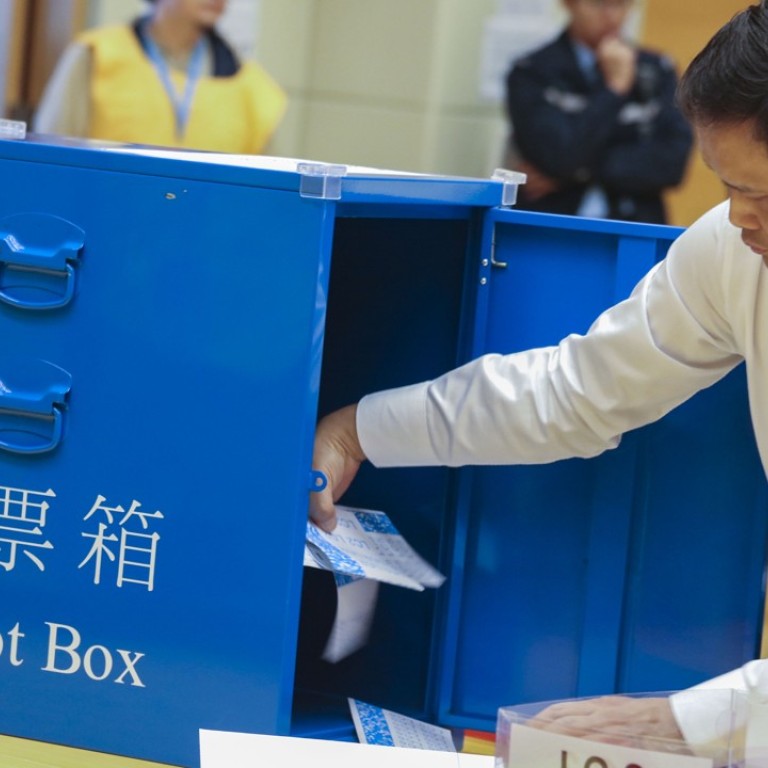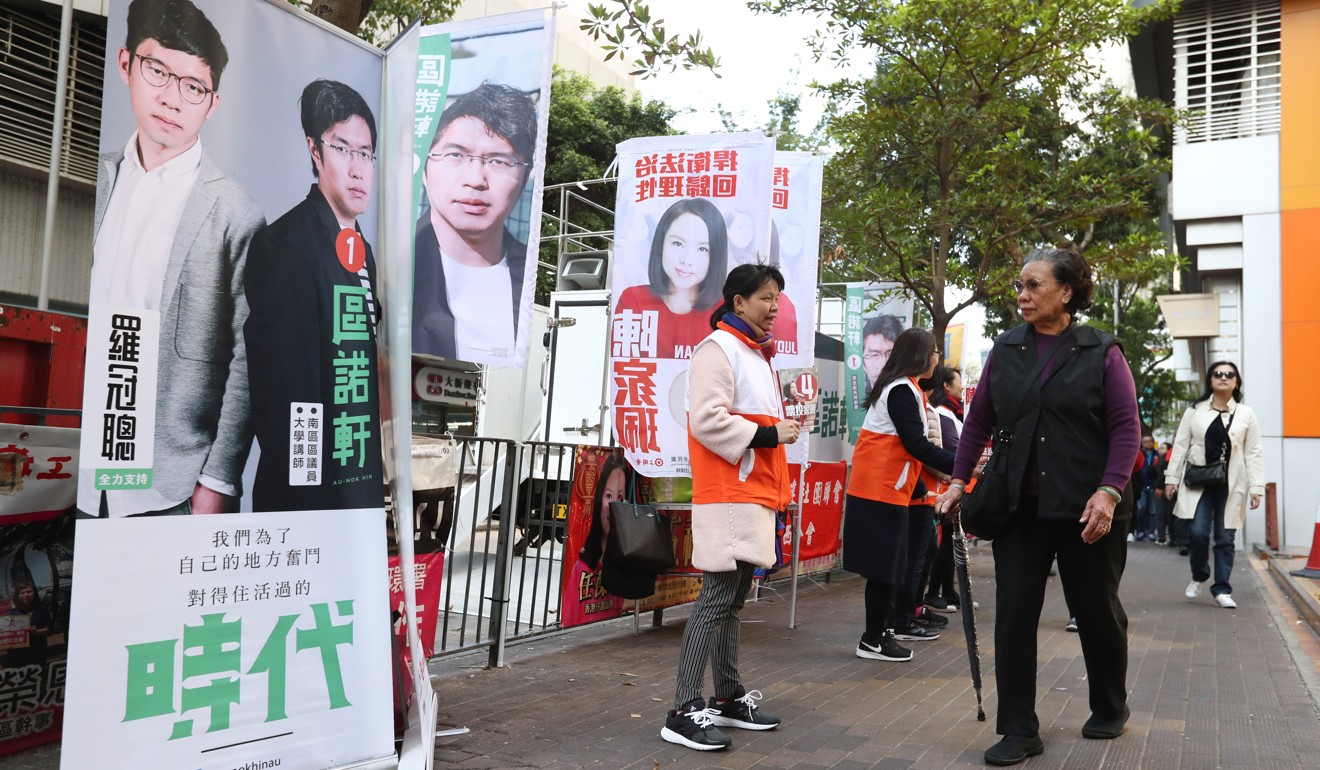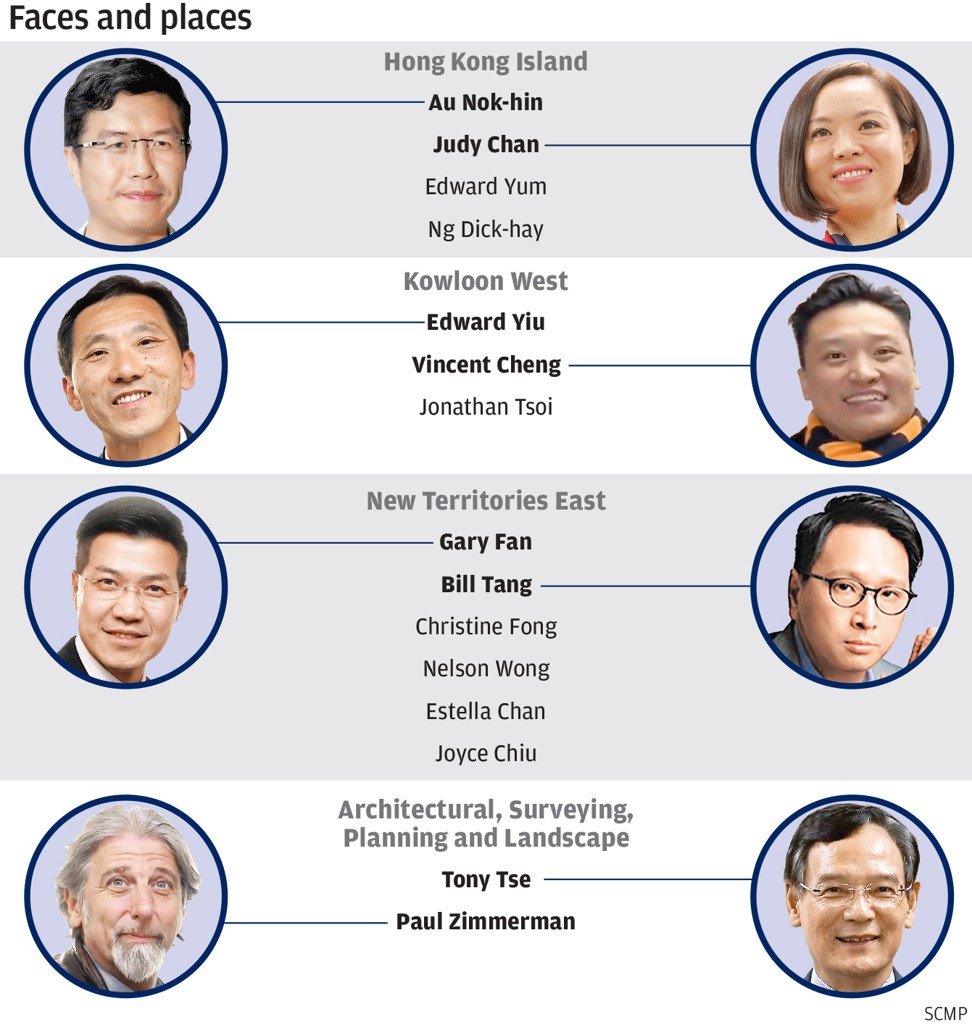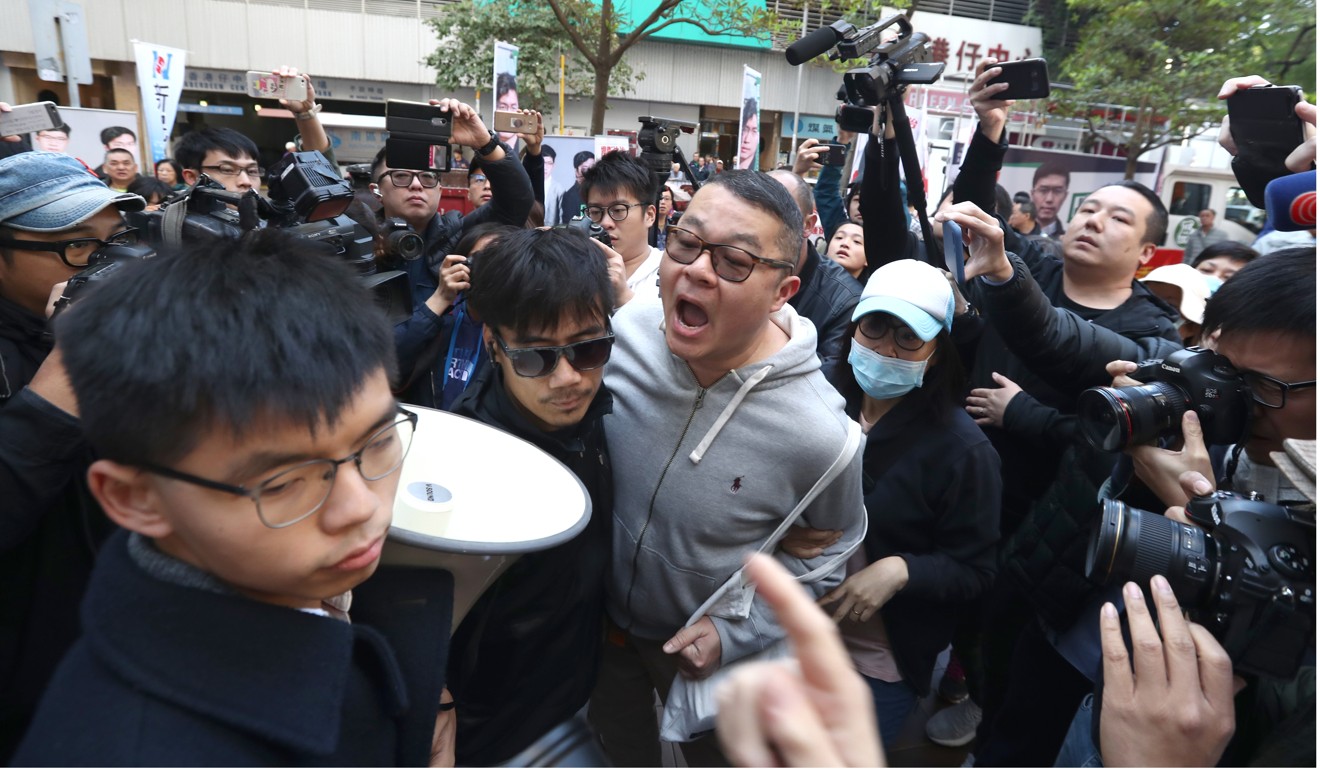
Low turnout at Hong Kong by-election spooks democrats as they vie to reclaim four lost seats
Lack of voters could signal pan-democratic failure to win over pro-independence localists, which would risk splintering the camp, analysts say
Hong Kong voters went to the polls on Sunday less than a year and a half after last doing so, casting ballots in legislative by-elections that gave opposition supporters a chance to recapture four out of six seats lost in a political fracas that drew the line on the kind of candidate deemed acceptable by Beijing.
But whether the pan-democrats could make a comeback remained uncertain late on Sunday night, as vote counting continued amid a lukewarm turnout for the three directly elected seats. As the voting closed at 10.30pm on Sunday, 904,000 of the 2.1 million registered voters in the four constituencies had cast their ballots, and the voter turnout rate was 43 per cent. In the Legco’s general election in 2016, the turnout rate was 58.3 per cent.
Analysts contacted by the Post warned that a low turnout could signal a pan-democratic failure to win over pro-independence localists, which would risk splintering the camp in the long run.

Hours before the closing of polling booths, candidates from the two major rival camps were making emergency appeals to galvanise voters into action. Both sides claimed a low turnout was not in their favour, despite the conventional belief it would hit the pan-democrats more.
‘Critical situation’ for election candidate as pan-democrat rival looks to upset the odds in Hong Kong
Gary Fan Kwok-wai, who was chosen to represent the pan-democrats to run in the New Territories East constituency, warned: “If the turnout is less than 40 per cent, I can almost say for sure, all four candidates of the pro-democracy camp will be wiped out.”
The by-elections are to fill four of six seats vacated by pro-democracy lawmakers who were disqualified last year after the government of then chief executive Leung Chun-ying won a court case over the controversial manner in which they took their oaths. Two of them, localist Lau Siu-lai and “Long Hair” Leung Kwok-hung of the radical League of Social Democrats, are still appealing their ban.
Frantic candidates issue ‘emergency’ appeals to mobilise voters in Hong Kong by-election
The four others ousted were Sixtus Baggio Leung Chung-hang and Yau Wai-ching of the pro-independence party Youngspiration, Nathan Law Kwun-chung of the pro-self-determination party Demosisto, and non-affiliated localist Edward Yiu Chung-yim.
Yiu was making a comeback bid, running in Kowloon West constituency this time.
The oath-taking saga led to a ruling in late 2016 by the National People’s Congress Standing Committee, the nation’s top legislative body, that said the declarations had to be taken in a sincere and solemn manner.
Can Hong Kong’s youth democracy movement survive the rocky path ahead?
In the run-up to the by-election the Hong Kong government attracted criticism from Western governments when young activist Agnes Chow Ting of Demosisto was banned from running on grounds that her party supported self-determination, seen by Beijing as a synonym for independence.
Political scientist Ivan Choy Chi-keung of the Chinese University of Hong Kong said the by-election could be seen as a protest vote against the disqualification of the pro-democracy lawmakers as well as the government’s banning of Chow from contesting.
“If the pan-democrats can win back the four seats, it will be a hit to the government,” Choy said.
But he warned that a low turnout rate could signal a widening rift between the mainstream pan-democrats and the younger and more radical pro-independence localists.
“The mainstream pan-democrats needed the buy-in from the localists if they are to keep their strength. If they failed to do so and the localists did not come out to vote as a gesture of protest, then the democracy movement of Hong Kong will be weakened in the long term,” Choy said.
What seemed to add weight to Choy’s theory was the low turnout in New Territories East, which, at 9.30pm, was 39 per cent, the lowest among the three contested geographical constituencies.
The area has long been a pro-democracy stronghold, enjoying a vote share of 57.6 per cent and pocketing six out of the nine constituency seats in the 2016 general election.

District councillor Fan, who has in the past tried to distance himself from pro-independence forces, had apparently offended the localists, who called on supporters to adopt a “scorched-earth policy” by casting blank votes instead of endorsing Fan, whom they said was not a true localist.
On speculation that the low turnout was partly because the government had deliberately played down the by-elections, Barnabas Fung Wah, chairman of the Electoral Affairs Commission, said it was common for the turnout in by-elections to be lower than at general elections.

The by-election, with more than 2.1 million eligible voters, got off to an unusual start, with Tung Chee-hwa, the city’s first post-handover leader and now a vice-chairman of China’s top political advisory body – the Chinese People’s Political Consultative Conference – choosing to make his advice public as to who his preferred candidates were.
Tung, after casting his vote, called on people to vote for candidates who were “constructive, pragmatic and true-heartedly serving Hong Kong”, stressing that “the era of quarrelling should be ended” and that “advocates of Hong Kong independence and self-determination will cost the city a heavy toll”.
Hong Kong’s leader Carrie Lam Cheng Yuet-ngor and her top officials, meanwhile, departed from their usual practice to appeal to voters to go to the polls. After casting their votes they walked past waiting reporters with nary a comment.
Additional reporting by Sum Lok-kei


